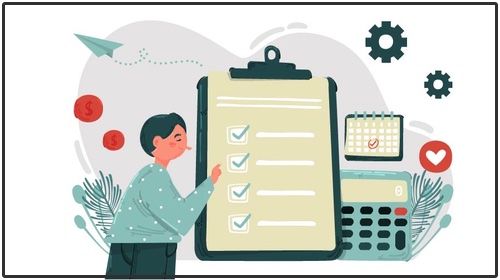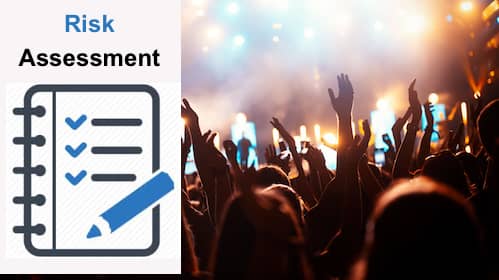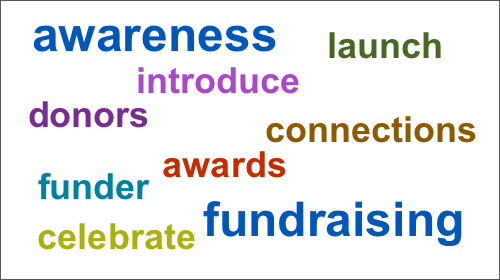Events: Common
Mistakes
Maximise the success of your event by avoiding some of these common mistakes.
Authored by: iClick2Learn Team
Translate Text
Table of Contents
Introduction
No event will ever run perfectly. But you can maximise the success of your events by avoiding some common event planning mistakes listed below.
Not Defining Your Event’s Purpose
Defining the purpose of your event is essential to achieving the desired outcome for your organisation. Your purpose will also be a driving tool in your planning and evaluation process.
Setting Unrealistic Expectations
It’s important to set realistic expectations of what attendees can expect at your event. For example, don’t advertise an all you can eat buffet, when there is a limit of servings per person.
Achieving the purpose of your event is important, but you also need to keep the needs of your guests and attendees in the front of your mind. If your attendees’ needs aren’t being met, your event won’t be successful and you might even receive bad publicity.
Poorly Constructed Budget
A well constructed budget, based on previous events and written quotes will give you a solid foundation for success. Even if you are hosting a small event, or fundraising isn’t your main purpose, you want to make sure you’re not going to lose money.
Here are some tips for constructing a budget:
- Base your budgets on actual figures and quotes, not guesstimates.
- If you have held a similar event in the past, review previous budgets
- Build a contingency amount into your budget for unexpected expenses
- Consider GST. Your organisation may not pay GST, but many businesses do, and will add GST to their invoice. Always asks if prices or quotes are inclusive of GST.
- Include marketing expenses in your budget. Marketing plays a pivotal role in the success of your event.
Not Having Agreements in Writing
Make sure to receive any quotes, agreements, and contracts in writing. Give a copy to your treasurer or secretary for your organisation’s records. This will give you peace of mind, if there is a dispute, you have written evidence of any agreements.
Not Allocating Enough Resources
Many organisations are working on minimal budgets. So it’s tempting to cut corners to save money. But cutting corners might actually cost you more financially in the long run, and could damage the reputation of your organisation or event.
When planning your event, be sure to allocate enough resources. Some resources to consider are:
- Staff
- Volunteers
- Seating
- Heating/Cooling
- Toilets
- Food
- Power
- Wifi
- Water/drink
- Workshop handouts
- Information flyers
- Parking
- Accessibility requirements
Having Insufficient or no Insurance
The minimum insurance cover you should consider is public liability. Public liability will protect your organisation should a vendor, attendee or member of the public injure themselves, or sustain damage to their property at your event.
Most venues and councils will ask for a copy of your public liability insurance when booking locations for events.
You may want to consider additional types of insurance such as volunteer insurance.
Always seek professional advice if unsure.Insurance is a necessity in today’s world.
If there’s an accident or property damaged at your event and you have no, or insufficient insurance, your organisation (and possibly committee members) can be held liable. This includes financial and legal liability.
Not Having a Risk Management Plan
Risk management plans can seem daunting if you haven’t created one before. But they don’t have to be a complicated, long or wordy document to be effective.
A good risk management plan simply needs to: identify any risks, and have a plan on how to minimise those risks, and what to do if that risk occurs.
For example:
Risk identified: possible food poisoning from catering
Preventative measure: hire a reputable caterer who holds relevant food safety certificates
If risk occurs: ensure the person affected receives any required medical care. Report the incident to relevant authority. Investigate how the food poisoning occurred and make changes to relevant policies.
Not Having an Event Agenda
You’ve put so much time, planning and hard work into organising your event. You don’t want it to fall down at the last minute.
This is where your event agenda comes in. An event agenda, will list in order, what is meant to happen when, and who’s responsible for individual tasks. Having an agenda will help you stay on schedule and identify staffing gaps.
For example:
6pm – Doors open- person responsible
6pm – 6.30pm – check tickets – person arrival
7pm – food is served – person responsible
You get the idea.
Lack of Marketing
No matter how well planned your event is, you need people to turn up to make it a success. This is where marketing comes in. Consider who your target audience for your event is, and create a marketing plan accordingly.
For example, if your target audience is aged 18 -25, Instagram would be essential in your marketing plan.
But if your target market is aged 60+, radio and newspapers might be more effective.
Don’t forget to include a marketing allocation in your budget.
Accessibility
It’s important to consider accessibility at your events. This includes accessibility to your venue locations and toilets. But also consider and vision, hearing, language, and cultural barriers. To prepare for any accessibility needs, have a question in your online ticketing system, regarding accessibility needs.
Conclusion
It’s best to avoid mistakes where you can, instead of dealing with the consequences after. The above is a list of common mistakes when planning events, but is by no means a list of all mistakes event planners make.
It’s important to research and plan for your individual organisation, event, and circumstances.









